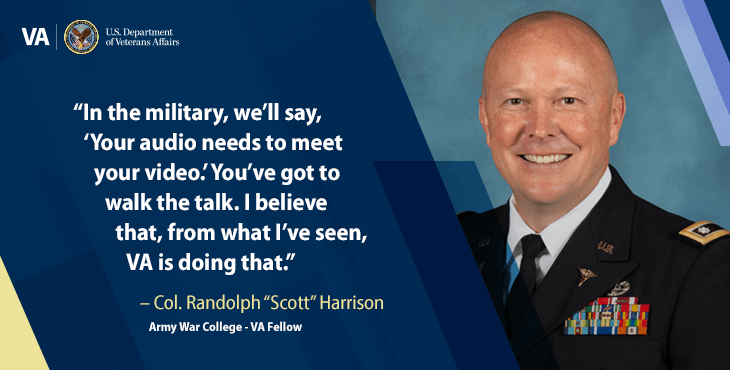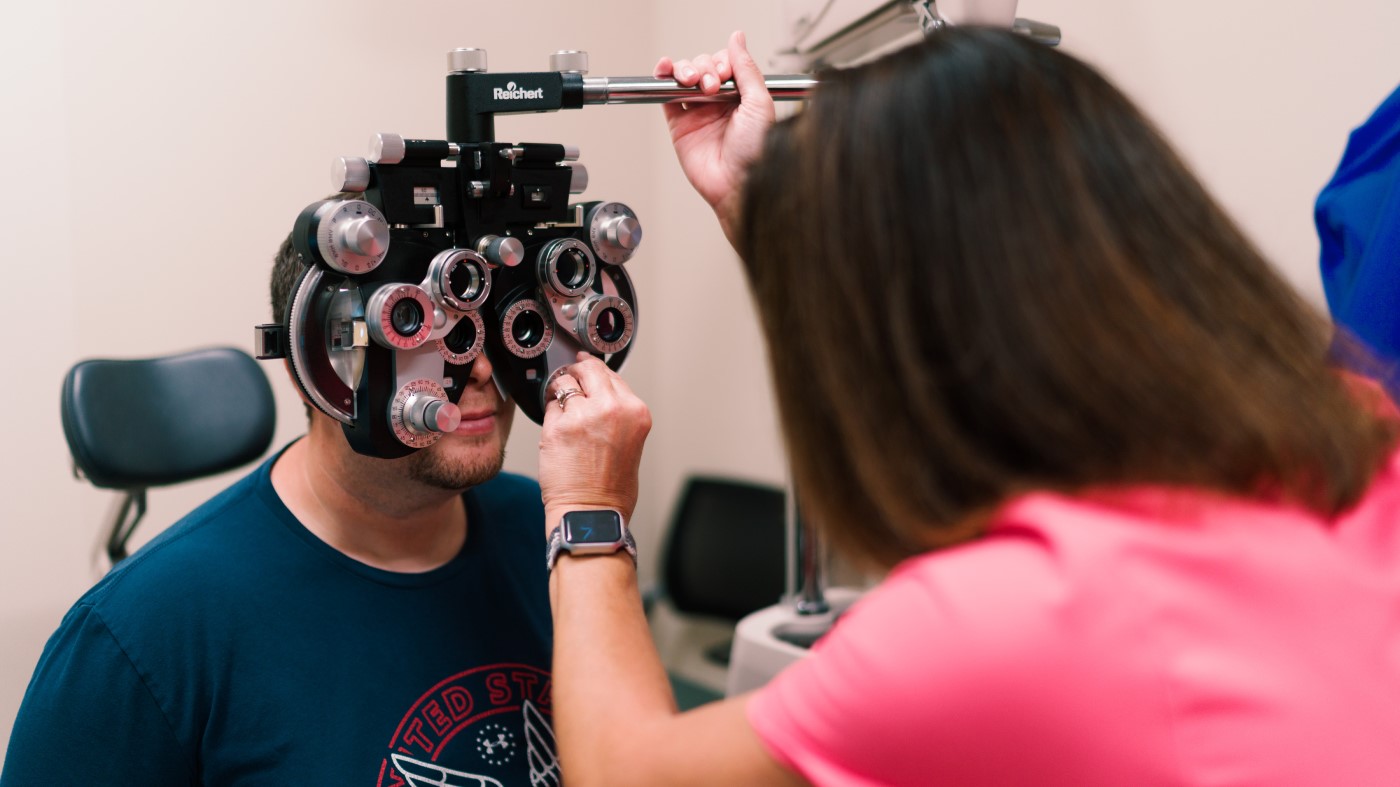Col. Randolph “Scott” Harrison’s career as a physician assistant (PA) has taken him from a peacekeeping mission in Bosnia to a fellowship at VA.
Appearing on our recent “Talk About It Tuesday”(TAIT) broadcast, Harrison shared his expertise and insight into PA careers. TAIT, a livestream dedicated to discussing VA career opportunities and advice, airs each week at noon ET on our LinkedIn page.
Shaping a career
Harrison’s interest in becoming a PA began during his first deployment, when he served as a medical service officer during a peacekeeping mission in Bosnia. His duties largely revolved around operations and logistics but watching the PA in his platoon offered him a different perspective.
“He demonstrated to me what I thought was a better choice of a job,” he said. “I liked what he was doing. He had his hands on patients. He was able to lay hands on patients and take care of them.”
Among his many accomplishments since, Harrison has served as associate dean of administration for the U.S. Army Medical Department, Health Readiness Center of Excellence Graduate School, and as battalion commander for Carl R. Darnall Army Medical Center, in Fort Hood, Texas.
“A lifetime of learning”
With his time in the military shaping his PA career, Col. Harrison was able to share a unique perspective on PA training and opportunities, as well as VA as a whole, with the TAIT audience.
Harrison encouraged those considering a medical career to get some experience. Whether learning skills in the military, as he did, or working with medical assistants, paramedics or EMTs, this experience offers crucial insight into the culture of medicine.
Discussing that culture led him to his next piece of advice: that a career in medicine involves “a lifetime of learning.”
“You are never done,” he shared. “We call it ‘practicing medicine’ because you are never done. There is always something changing. You’re constantly having to read and listen and study to be able to stay clinically proficient.”
The VA mission
Harrison’s current duties with VA came about through his affiliation with the Army War College. The War College develops fellowships as interagency partnerships to explore strategic leadership between government organizations.
At VA, Harrison has found that work with Veterans has established a rallying point, not just for VA, but for the public as well. The care of those who have served is a common mission, and one that he believes VA is accomplishing.
“In the military, we’ll say, ‘Your audio needs to meet your video.’ You’ve got to walk the talk,” he explained. “I believe that, from what I’ve seen, VA is doing that.”
Work at VA
Whether you’re a new graduate or an experienced professional, PAs are always needed at VA.
- WATCH Col. Harrison’s Q&A.
- CATCH us on TAIT each week.
- LEARN about the benefits of a VA career.
- EXPLORE career opportunities by visiting www.VACareers.va.gov.
Topics in this story
More Stories
Whether it’s access to the great outdoors or a calmer pace in your everyday life, you can find it in rural VA communities around the country.
We offer some quick and easy steps to show you how to format a cover letter, and what information to include.
The eye care provided by ophthalmologists can make all the difference to our Veteran patients.






Agree Robert. Worked at the VA until my BP skyrocketed just walking in the door. As a Vet myself, it was disgraceful the way some of the staff treated the vets. I complained all the way to the top and they did nothing to fix it. So sad.
Bullsht. The VA is sitting the sit and napping the nap. If I functioned as poorly as the VA does I would be jobless and on my -ss.